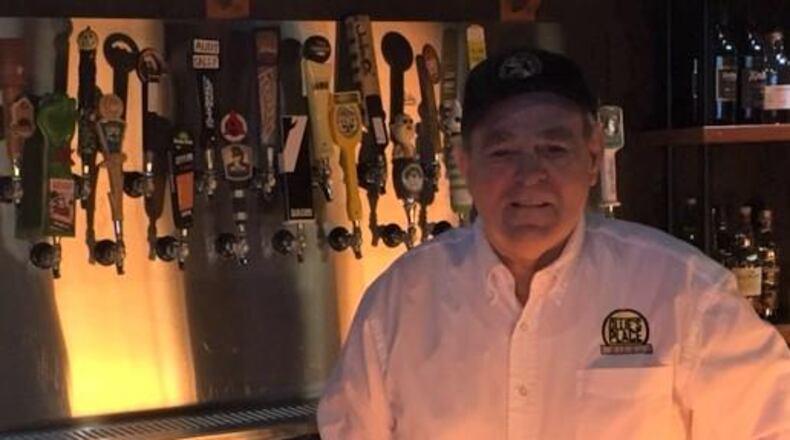The law provides long-overdue recognition to the homebrewing hobby, said Mike Schwartz, owner of Miami Valley BrewTensils and known as “Dayton’s godfather of beer.”
“A couple of years ago, in Ohio there was no law saying that it was legal or illegal,” he said.
Homemade beer or wine still can’t be sold at those events. The law does allow political or charitable organizations to give away beer or liquor as a prize at a fundraiser, but it must be bought legally in Ohio.
The new law’s “big bullet point” for Joe Brumley, owner of HBYOB – that’s “Home Brew Your Own Beer” – on North Springboro Pike in Dayton, is allowing homebrewed beer tastings at businesses like his.
“Honestly, I think it’s a great thing,” he said. “A lot of the laws are pretty old. When they were written, craft beer wasn’t as popular as it is today.”
Schwartz agreed that allowing tastings and similar events is a big improvement.
“Homebrewers are running out of places to meet,” Schwartz said. Previously breweries had to close to the public to allow brewing clubs to meet. This law changes that.
“That’s a big plus for the clubs, and I think we have to keep the clubs going,” he said.
Homebrewing clubs in the area are often filled with well-educated professionals who are dedicated to refining their creations, Schwartz said.
“I tell you what, I’ve learned more off of homebrewing than I did science in school,” he said.
Homebrewing clubs often want to hold meetings at local breweries and brewpubs, Brumley said. Until now “they kind of did it in the grey,” often meeting after business hours. But allowing those meetings during the day will allow other customers to discover the clubs, potentially getting more people into the homebrewing hobby, he said.
It sounds like Ohio lawmakers are now willing to adjust the laws to match the current situation, Brumley said. He hopes that will continue.
Brumley said he saw a basic description of the law on social media from the American Homebrewers Association, but hasn’t heard many locals talking about it.
“I’m not sure many customers even know,” he said.
The bill, sponsored by state Sen. Kristina Roegner, R-Hudson, passed the General Assembly with strong bipartisan support.
The new law affects more than just homebrewers. It also lowers the age at which a server in a hotel, bar or restaurant can handle open alcohol containers from 19 to 18.
It will allow special elections for local-option alcohol sales even when there are no candidates for office on the ballot.
“Current law requires local option questions to appear on the ballot of a primary or general election where there are candidates for office on the ballot,” according to the state Legislative Service Commission.
The bill also reduces the signature requirement to get legalization of Sunday alcohol sales on a local special election ballot from 35% of the people who voted in the previous gubernatorial election in that jurisdiction to just 50 people.
Under the new law, designated outdoor refreshment areas, or DORAs – where alcohol can be served and consumed – will be divided into two categories instead of three.
One category will be for communities with 50,000 or fewer people, while the other will apply to larger communities.
In the smaller DORAs, the necessary number of alcohol permit holders will be cut from four to two.
“Overall, these changes would increase the number of allowable DORAs in a specific area,” the Legislative Service Commission analysis said. “There are currently 28 DORAs that have been issued a permit.”
About the Author

